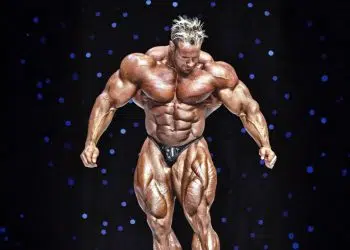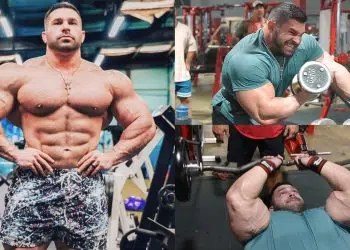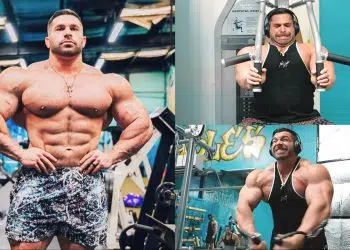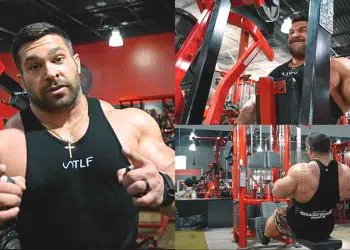In 2022, Joe Weider’s Fitness and Performance Weekend has 11 bodybuilding contests. Each division has its own set of rules of engagement. The Olympia contests offer so much variety that a bodybuilding aspirant will find a division that suits them no matter their preferences.
Competitive bodybuilding requires muscle size, quality, proportions, density, symmetry, balance, and conditioning. Let’s forget the posing, presentation, and stage presence for a second, shall we?
Now, as much as we hate to admit it, a bodybuilder’s height plays a crucial role in their structure and hence their muscular proportions and symmetry. While a 5-foot-9-inch bodybuilder might look aesthetically appealing while weighing 300 pounds, it’s nearly impossible for a 5-foot-5-inch bodybuilder to look gracious weighing the same. Just so you know, the two-time Mr. Olympia champ (Men’s Open division) Big Ramy is 5-foot-9, and the seven-time 212 Olympia champ James “Flex” Lewis is 5-foot-5.
Although one might argue that an athlete’s weight isn’t everything when it comes to winning a bodybuilding show, the truth is that size can help tilt the outcome in your favor.
The IFBB (organizers of the Olympia Weekend) realized this when it saw the number of “lightweight” elite bodybuilders gradually disappear from the Olympia roster. In 2008, the IFBB introduced the 202 division as its non-heavyweight division. However, it was changed to the 212 division in 2011.
As the name suggests, the 212 division required bodybuilders to weigh no more than 212 pounds on the day of the weigh-ins.
Level Up Your Fitness: Join our 💪 strong community in Fitness Volt Newsletter. Get daily inspiration, expert-backed workouts, nutrition tips, the latest in strength sports, and the support you need to reach your goals. Subscribe for free!
David Henry won the inaugural 212 Olmpia in 2008. James “Flex” Lewis is the winningest athlete in the division, with seven 212 Olympia titles under his belt. Keone Pearson is the reigning 212 Olympia champ.
Although there are no height standards for guys in the 212 division, it is a de facto division for shorter guys. It is much harder to look balanced and display full and balanced muscle bellies for a 5-foot-10-inch bodybuilder while weighing 212 pounds.
The weight limit is the only differentiating factor between the 212 and Men’s Open divisions. Bodybuilders from both divisions are judged on the same criteria.
Not only did the 212 division give the shorter guys a fair chance of becoming an Olympia champ, but the re-introduction of the non-heavyweight class also helped the IFBB pull in more talent, which helped expand its footprint amongst athletes and fans.
Before the 202 Olympia, men had only one division. It was after the 202 Olympia was introduced, the big boy contest became the Men’s Open division. The Men’s Physique Olympia debuted in 2013, and the Classic Physique Olympia in 2016.
The History of the 212 Division
Although the 212 division is relatively new, it isn’t the first time the IFBB has experimented with different weight classes. Olympia introduced weight classes in 1974 and followed them until 1979. The two weight classes were:
- Under 200 pounds
- Over 200 pounds
The winner of each division then went head-to-head for the coveted Sandow trophy.
Bodybuilders like Arnold Schwarzenegger and Lou Ferrigno competed in the over 200-pound division, while icons like Franco Columbu and Frank Zane butted heads in the under 200-pound division.
From 200 Pounds to 202 Pounds
The 212 division originally debuted as the 210-pound weight class in 2008 at the Europa Super Show. However, the IFBB, wanting to return to the golden-era aesthetics, dropped the weight limit to 202 pounds after just one contest at the beginning of 2009.
Although the 202 division gained traction and saw fierce competitors like David Henry, Kevin English, and Seth Feroce, the weight restriction was too stringent and many of the 202 biggies put forward their intention of moving up to the Open division.
However, the IFBB took suo moto cognizance of the issue and increased the weight cap to 212 pounds in 2011. Athletes welcomed the move and the division has been steadily growing ever since.
All 212 Olympia Winners Since 2008
Six bodybuilders have been crowned the 212 Olympia champs in the last 14 years. Interestingly, the 212 O trophy has changed hands four times in the last four years. Flex Lewis and Kevin English are the only two bodybuilders to win multiple 212 Olympia titles.
Given below are all the 212 Olympia winners. Notably, the 212 division was the 202 division until the 2011 competitive bodybuilding season.
| Name | Years | Wins |
| David Henry | 2008 | 1 |
| Kevin English | 2009, 2010, and 2011 | 3 |
| Flex Lewis | 2012, 2013, 2014, 2015, 2016, 2017, and 2018 | 7 |
| Kamal Elgargni | 2019 | 1 |
| Shaun Clarida | 2020 and 2022 | 2 |
| Derek Lunsford | 2021 | 1 |
| Keone Pearson | 2023 | 1 |
2008: David Henry
2008 is one of the most memorable years in the history of Olympia. The 202 Olympia debuted at the 2008 Olympia, and Dexter Jackson beat the dominant Jay Cutler to win the Mr. Olympia (Men’s Open) title.
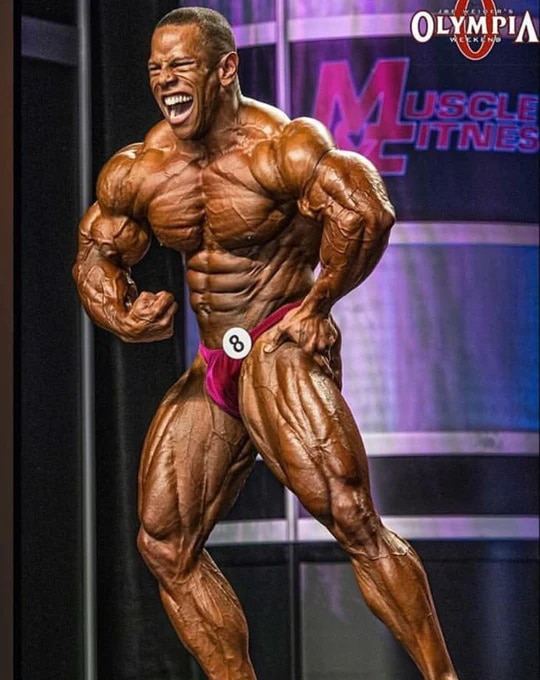
The popular non-heavyweight bodybuilder David Henry walked away with the first 202 Olympia trophy. Future champs Kevin English and Flex Lewis finished with podium places.
Henry also competed in the Men’s Open division at the 2008 Olympia, finishing 15th. It showed the difference in the size of a 202 bodybuilder and the big boys and its effect on the results. Henry had placed 10th at the 2007 Mr. Olympia.
2008: Las Vegas, NV
- First: David Henry
- Second: Kevin English
- Third: Flex Lewis
2009-2011: Kevin English
Although Henry won the 2008 212 Olympia convincingly, he could not hold it for long. English’s symmetry, balance, and conditioning helped him seize his first Olympia title while the 2008 champ fell to second place.
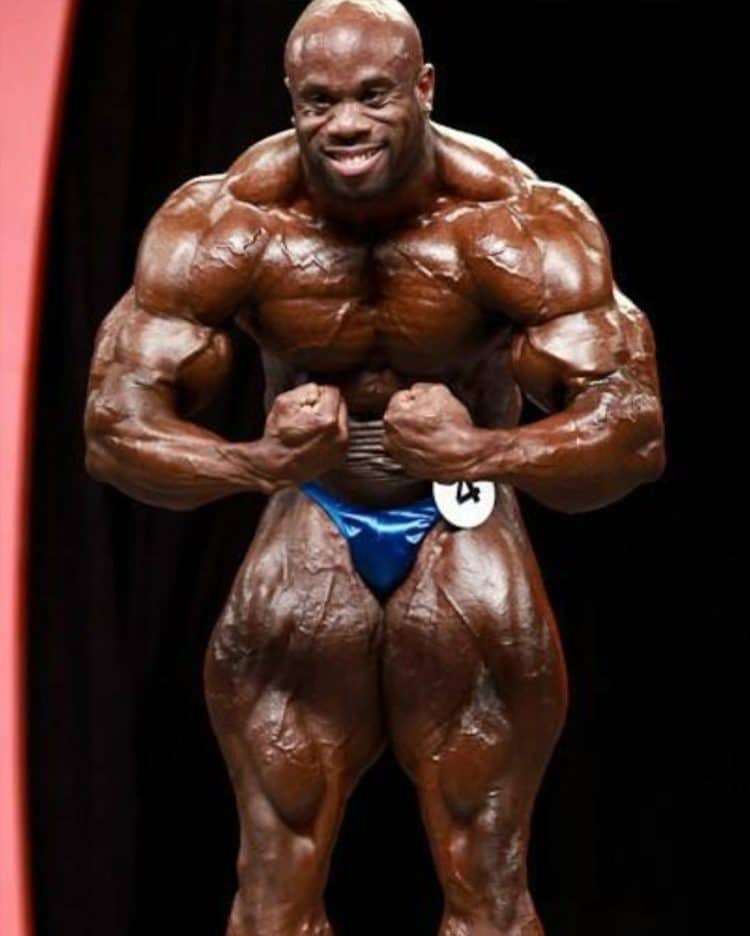
2010 was a repeat of 2009 with English, Henry, and Eduardo Correa taking the top-three spots, respectively. With his win at the 2010 Olympia, English became the first bodybuilder to win multiple 202 titles.
2009: Las Vegas, NV
- First: Kevin English
- Second: David Henry
- Third: Eduardo Correa
2010: Las Vegas, NV
- First: Kevin English
- Second: David Henry
- Third: Eduardo Correa
2011: Las Vegas, NV
- First: Kevin English
- Second: Flex Lewis
- Third: Jose Raymond
2011 was the last year for the 202 Olympia. The non-heavyweight athletes were given a headroom of 10 additional pounds, and the division was restructured as the 212 Olympia.
Also, after a humbling fifth-place finish at the 2009 Olympia, Lewis took the 2010 competitive season off to work on his physique. “The Welsh Dragon” returned with a bang at the 2011 Olympia to secure a second-place finish.
2012-2018: Flex Lewis
English didn’t compete at the 2012 Olympia, leaving the 212 throne vacant. While Henry took 2011 off to work on his physique, the Welsh bodybuilder had been gaining momentum, and the 10-pound headroom worked in his favor.
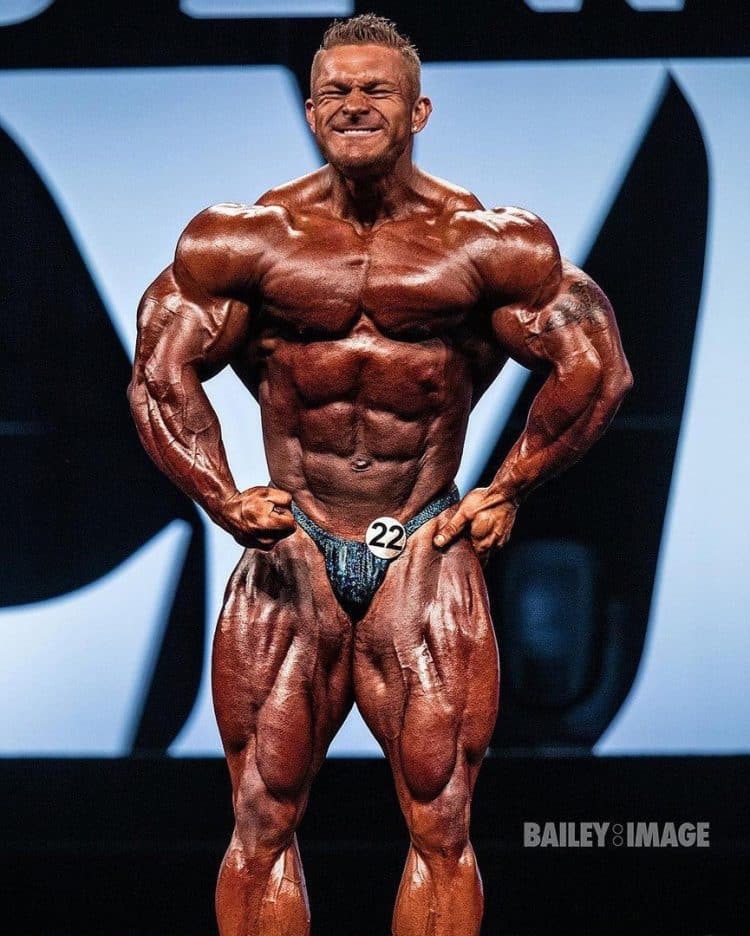
Although Henry, Correa, and Raymond put up a fight, Lewis won his first 212 Olympia throne at the 2012 Olympia, making him technically the first “212 Olympia” champ.
Level Up Your Fitness: Join our 💪 strong community in Fitness Volt Newsletter. Get daily inspiration, expert-backed workouts, nutrition tips, the latest in strength sports, and the support you need to reach your goals. Subscribe for free!
After seeing his package at the 2012 Olympia, many experts predicted Lewis would win the 212 Olympia crown multiple times. However, what happened next turned the English bodybuilder into a legend.
Lewis did not rest on his laurels and improved his physique every year. The Welsh Dragon’s hunger for more helped him dominate the 212 division for seven years, equalling Arnold Schwarzenegger’s seven Olympia title wins.
2012: Las Vegas, NV
- First: Flex Lewis
- Second: David Henry
- Third: Eduardo Correa
Since English was not competing at the 2012 Olympia and the contestants could put on 10 more pounds of muscle, Henry decided to make a comeback. However, the former 212 Olympia champ had to settle for a runner-up finish behind Lewis.
2013: Las Vegas, NV
- First: Flex Lewis
- Second: David Henry
- Third: Kevin English
After the 2008 Olympia, the 2013 Olympia was the next and last time Lewis, Henry, and English’s trio ended on the podium. English hung up his posing suit after the 2013 Olympia.
2014: Las Vegas, NV
- First: Flex Lewis
- Second: Eduardo Correa
- Third: Jose Raymond
2015: Las Vegas, NV
- First: Flex Lewis
- Second: Jose Raymond
- Third: Hidetada Yamagishi
2016: Las Vegas, NV
- First: Flex Lewis
- Second: Ahmad Ashkanani
- Third: Jose Raymond
2017: Las Vegas, NV
- First: Flex Lewis
- Second: Ahmad Ashkanani
- Third: Jose Raymond
2018: Las Vegas, NV
- First: Flex Lewis
- Second: Derek Lunsford
- Third: Kamal Elgargni
2018 turned out to be an unforgettable year at the Olympia. The late Shawn Rhoden unseated Phil Heath to lift the Sandow trophy. On the other hand, intending to compete in the Men’s Open division, Lewis announced his retirement from the 212 Division after winning his seventh 212 Olympia title in 2018.
However, destiny had some other plans for Lewis. After shelving plans to compete in the Men’s Open division for a couple of years due to injury, Lewis announced his retirement from competitive bodybuilding in May 2022.
Lewis, without divulging too much, sent ripples through the bodybuilding community by recently revealing that he is planning to do something ‘with Olympia as the end goal.’
Interestingly, the other two podium finishers of 2018 would become future 212 Olympia champs. This phenomenon last happened 10 years ago at the 202 division debut at the 2008 Olympia.
2019: Kamal Elgargni
With Lewis out of the way, the 212 Olympia throne was up for grabs. Although it was a fierce battle in the non-heavyweight division, Elgargni walked away with the 212 Olympia trophy.
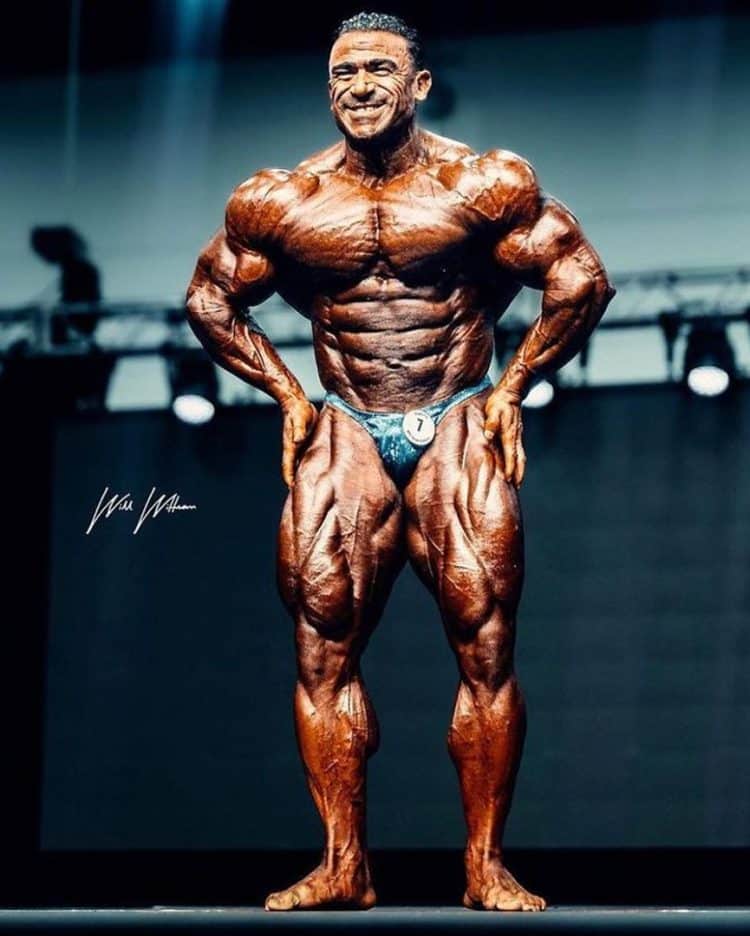
Elgargni moved to the IFBB Pro League in 2018. The popular bodybuilder had made a dent in the 212 division by placing third at his maiden Olympia. However, Egargni surpassed all expectations by winning his first Olympia title at the age of 48.
Overall, if you thought the 2018 Olympia was indelible, the 2019 Olympia took it to a whole new level. Each of the four Men’s divisions got a new champion.
Due to an impending trial, Rhoden was banned from competing at the 2019 Mr. Olympia and future competitions, leaving the Mr. Olympia throne vacant. Brandon Curry seized this opportunity and grabbed his first Sandow trophy.
Chris Bumstead dethroned Breon Ansley to win his maiden Classic Physique Olympia title, and Raymont Edmunds proved he was better than reigning champ Brandon Hendrickson at the 2018 Olympia.
2019: Las Vegas, NV
- First: Kamal Elgargni
- Second: Derek Lunsford
- Third: Shaun Clarida
Notably, while Elgargni and Lunsford were the frontrunners for the 212 Olympia, Shaun Clarida surprised everyone by jumping from the seventh spot at the 2018 Olympia to the third-place finish at the 2019 Olympia.
2020 and 2022: Shaun Clarida
The 5-foot-2-inch bodybuilder from New Jersey stunned the bodybuilding community by snatching his first 212 Olympia throne at the 2020 Olympia.
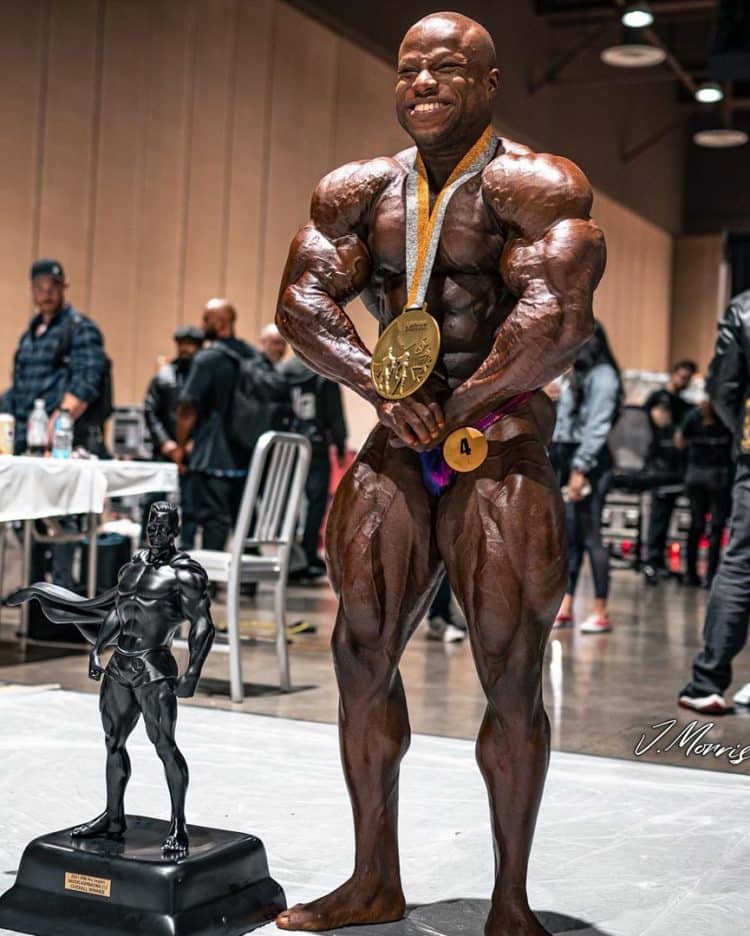
The 2020 Olympia was organized in Orlando, FL, due to the COVID-19 scare. Joe Weider’s Fitness and Performance Weekend moved out of Las Vegas, NV, after 21 years in 2020.
There were two upsets at the 212 2020 Olympia. First, Clarida ended Elgargni’s short reign. Second, after two consecutive runner-up finishes, Lunsford had fallen to the fourth spot.
2020: Orlando, FL
- First: Shaun Clarida
- Second: Kamal Elgargni
- Third: George Peterson
2022: Las Vegas, NV
- First: Shaun Clarida
- Second: Angel Calderon Frias
- Third: Kamal Elgargni
After winning the 212 title in 2021, Lunsford moved up to the Men’s Open division, where he placed runner-up behind Hadi Choopan at the 2022 Olympia. However, this left the 212 O throne vacant, and Clarida and Elgargni became the frontrunners to win the 212 2022 O throne.
Clarida surprised everyone with his much bigger frame and improved conditioning. He created history by becoming the first bodybuilder to win back the 212 Olympia title after losing it.
Elgaragni maintained his third-place finish from the 2021 Olympia, while Angel Calderon Frias jumped to the second spot.
2021: Derek Lunsford
The Petersburg native had been considered a future 212 Olympia champ since his fifth-place Olympia debut at the 2017 Olympia. To his credit, he did not take finishing fourth lightly.
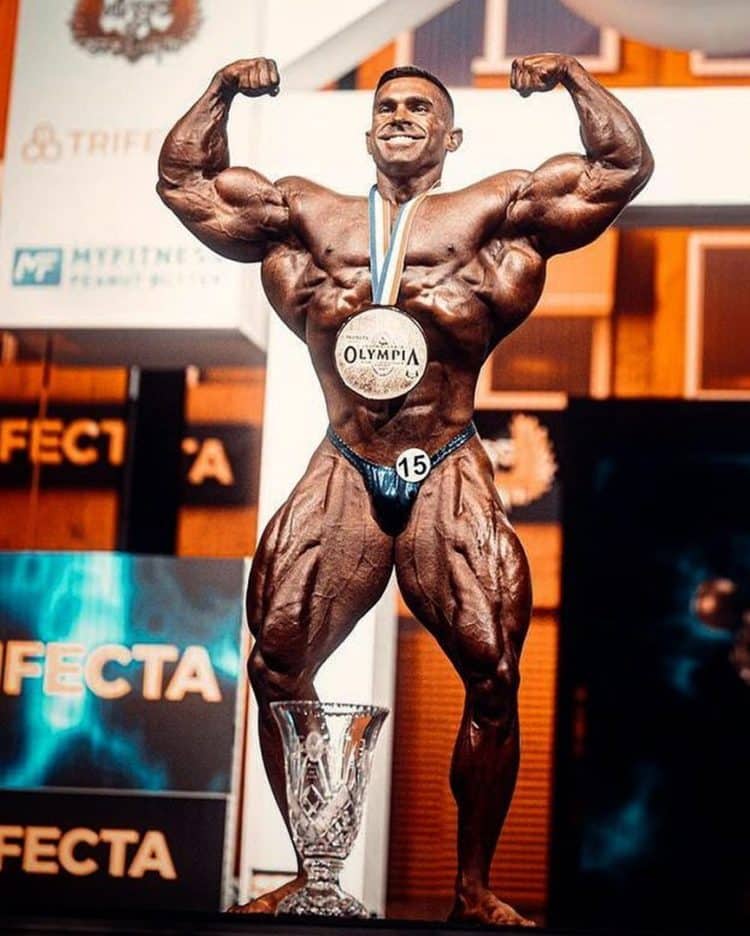
Lunsford returned all guns blazing at the 2021 Olympia to win his maiden 212 Olympia title. The other two podium finishers slipped a position each compared to their 2020 Olympia standings.
2021: Orlando, FL
- First: Derek Lunsford
- Second: Shaun Clarida
- Third: Kamal Elgargni
After his second-place finish at the 2021 Olympia, Clarida competed in the Men’s Open division at the 2021 Legion Sports Fest Pro. The 5-foot-2 bodybuilder decimated his competition to win his maiden Open division title, earning a direct invitation to compete at the 2022 Mr. Olympia (Open division) contest. Clarida’s Legion Sports Fest Pro win made him the first 212 competitor to win a Men’s Open division show.
2023: Keone Pearson
Keone Pearson had been on the radar of most bodybuilding fans for a long time, but he had not been able to convert his potential into big title victories. But that changed at the 2023 Olympia. Pearson won his IFBB Pro card in the Classic Physique division in 2017 but transitioned to the 212 division in 2020.
“The Prodigy” had placed 14th in his 212 division debut at the 2021 Olympia. He jumped to sixth place at the 2022 Olympia and successfully unseated Clarida to win his maiden 212 Olympia title in 2023.
2021: Orlando, FL
- First: Keone Pearson
- Second: Shaun Clarida
- Third: Angel Calderon Frias
The winners of the other divisions:
- Every Bikini Olympia Winner Since 2010
- Every Fitness Olympia Winner Since 1995
- The Complete List of Every Wellness Olympia Winner
- Every Wheelchair Olympia Winner Since 2018
- Every Classic Physique Olympia Winner Since 2016
- Every Mr. Olympia (Men’s Open Division) Winner Since 1965
- Every Women’s Physique Olympia Winner Since 2013
- Every Figure Olympia Winner Since 2003
- Every Men’s Physique Olympia Winner Since 2013
- Every Ms. Olympia Winner Since 1980 (and History of the Division)


